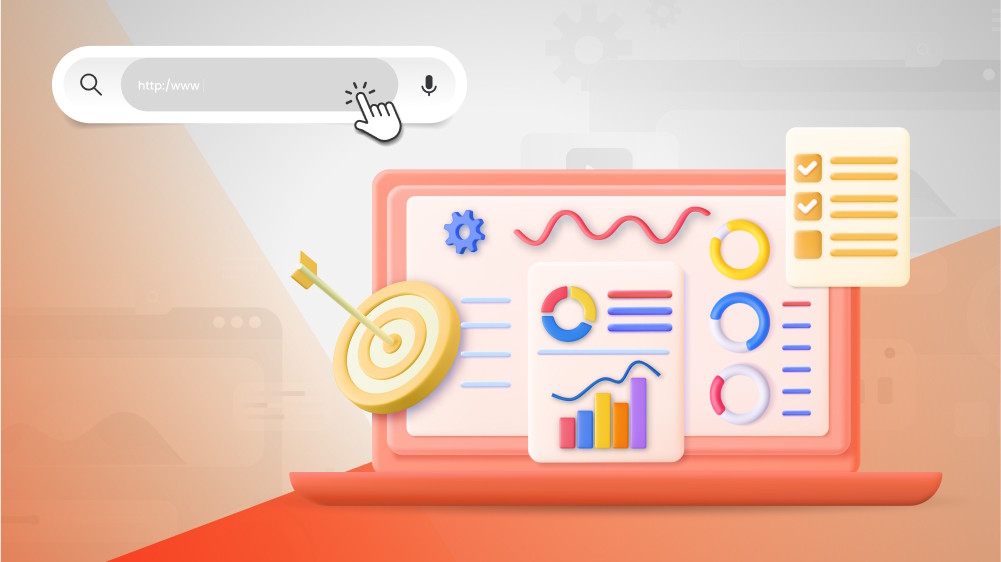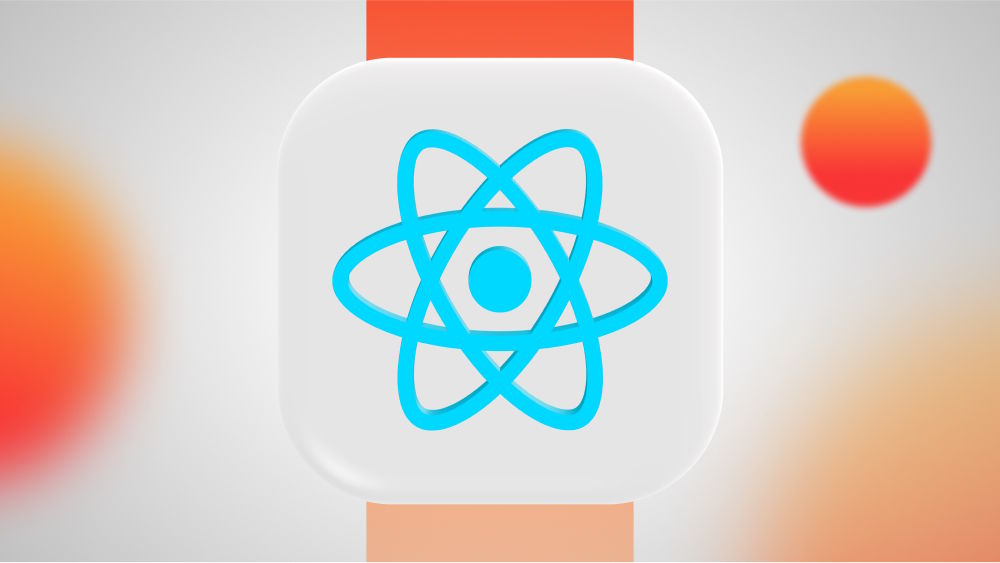
Database Web Applications: 15 Best Databases for Web Applications
Many web application databases are available on the market in which each offers different features and capabilities. If you are in the middle of nowhere, let’s first begin with these 15 best databases.
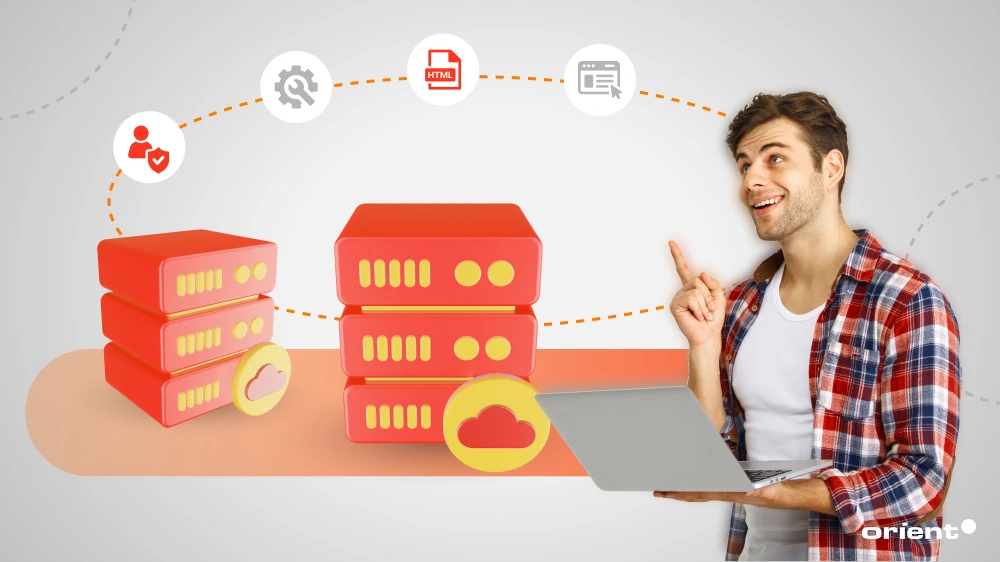
Content Map
More chaptersYour web applications have a user-friendly UX/UI interface. And you think that’s all it takes to attract and retain potential customers. Yes. However, that is not all.
Software development is a complex process that requires more than just a user interface. For the application to work in the right trajectory, businesses need to give more attention to the role of database web applications. Databases help you ensure not only elements of information security but also speed and storage capacity.
There are many database management systems available in the market. This is both an advantage and a disadvantage for businesses when they do not know where to start and what the right choice is. Join Orient Software to discover the 15 best databases for web apps, starting with the helpful information below.
Common Types of Databases Available for Web App Developers
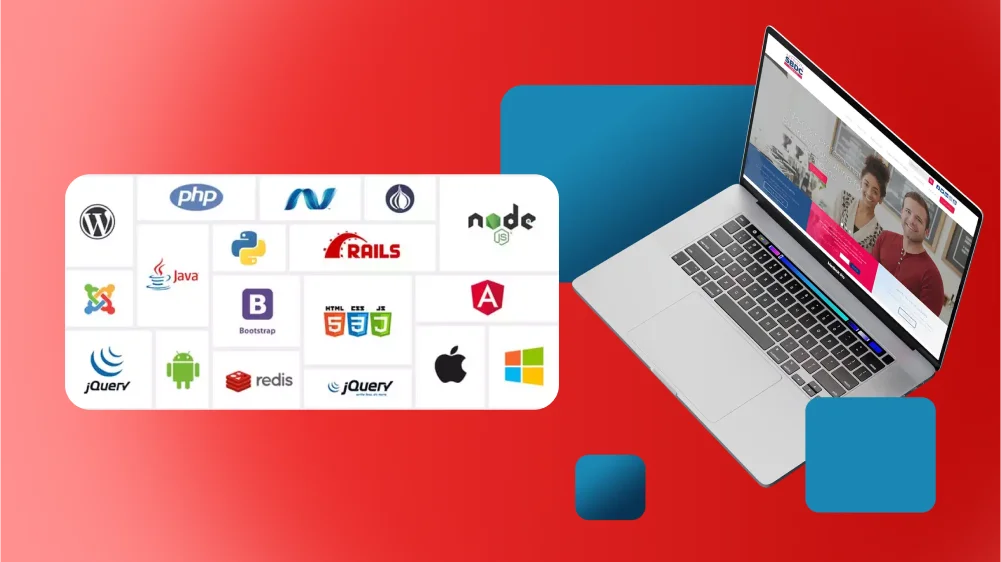
Depending on the diverse requirements of the web app development environment and the ability to meet storage and management solutions of each type, businesses will need to choose a compatible database for web applications. There are multiple databases for web and mobile applications. However, this article only revolves around web apps. Below are four types of database options, especially for development teams in the building web application development process.
Relational Databases
Traditional relational databases, or what we call SQL (structured query language) databases, are the type of database management systems that store data in the form of one or more tables. Each table consists of columns and rows. In the relational database, tables represent entities (e.g., customers, orders, products). Meanwhile, columns represent the attributes of these entities (e.g., name, ID number, price); rows represent a particular instance of an entity with particular information. The relational database management system allows developers to link and retrieve data across multiple structured tables, improve efficiency, and support structured data integrity through the relationship between tables, columns, and rows.
NoSQL Databases (Non-relational Databases)
Unlike other types of database management systems that use the traditional tabular structure of relational databases, NoSQL databases for web applications store unstructured data in different ways depending on the certain type of non-relational databases, such as document-oriented databases, key-value stores, etc. By scaling horizontally and easily adding additional servers to distribute the data processing load, the NoSQL database is particularly well suited for software solutions that change continuously with large amounts of data. They include:
- Document databases: Store data in document format
- Key-value stores: Store data by using a simple key-value pair
- Wide column stores: Use rows, tables, and dynamic columns
- Graph databases: Emphasize the relationships between data points
Object-oriented Databases
Object-oriented databases are designed explicitly for fundamental concepts in object-oriented programming languages like Java and Python. Instead of having data structures in the form of tables, as in the relational database management system, object-oriented databases for web apps store data as objects, which means data contains itself by both the operations and methods that can be performed on that document data. Meanwhile, objects also possess distinct attributes like ID numbers, methods, etc.
In-Memory Databases
True to its name, in-memory databases mainly depend on the memory of computer data storage rather than disk or SSDs. It is for this reason that this type of database is particularly suitable for applications that require real-time data processing, such as a banking app. Using in-memory databases is expensive but ensures data transfer speed, as well as reduces latency compared to traditional disk-based databases.
Other Types of Databases
In addition to the above-listed database types, developers can consider a number of other options to optimize data storage, such as:
- NewSQL databases: By combining the scalability of NoSQL with the ACID properties of SQL, NewSQL databases are especially suitable for high-performance transactional applications.
- Time-series databases: As the name suggests, time-series databases are developed to handle time-stamped data in IoT applications and financial solutions.
- Graph databases: This type of database focuses on complex relationships between data in graph structures and is great for recommendation systems, social networks, and network analysis.
Functions of Database Management System Perform in Business Operations

One of the important criteria that make most modern web apps profitable is based on the success and future of their database management systems. Why? Below are the top functions a right database offers to business operations.
- Data storage: A database allows businesses to manage and store large amounts of data in a systematic way.
- Data retrieval: With a variety of tools such as SQL queries, reporting tools, etc., businesses easily extract information when needed.
- Data integrity: The database ensures the data’s consistency and accuracy by providing transaction processing and data validation rules.
- Data security: Businesses can protect confidential information and sensitive data from unauthorized access thanks to backup and recovery options.
- Data scalability: Database allows businesses to easily add more hardware resources during development.
- Data sharing: By enabling businesses to share data across company departments and systems, the database gains better collaboration.
Database Web Applications: List of 15 Best Databases for Web Applications
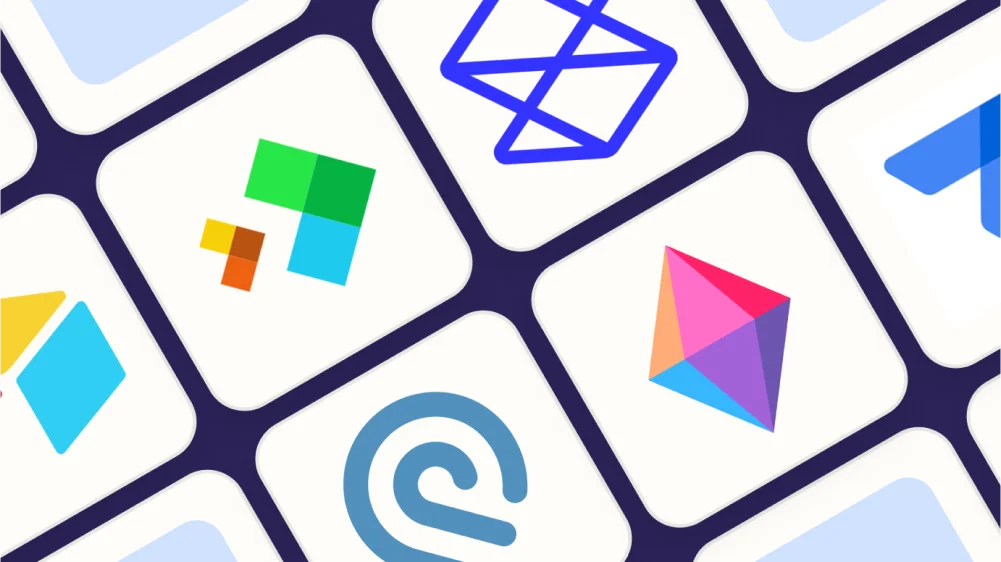
Many web application databases are available. In which each offers different features and capabilities. Some web database applications belong to relational databases. Others belong to NoSQL databases. No database software is the best database for web applications because it depends on many factors, especially the specific needs of web applications. Here are 15 popular databases that are commonly used.
MySQL
Type: Relational database
MySQL is an open-source relational database management system that is not only widely used for web applications but also for other types of software. Being owned by Oracle Corporation and was developed by a Swedish company called MySQL AB, MySQL database is compatible with diverse operating systems and programming languages like Java, C++, Python, etc. This relational database maximizes performance and forms a complete web development stack when used in conjunction with other open-source software such as PHP, Apache, Linux, etc. Currently, MySQL has both commercial and community editions, depending on user needs.
Microsoft SQL Server
Type: Relational database
True to its name, Microsoft SQL Server is a product of Microsoft Corporation designed with the purpose of storing and accessing data across multiple servers while ensuring performance and security. As a relational database, MS SQL Server keeps information safe based on table structure and built-in high availability and disaster recovery options such as Always on Availability Groups and Failover Clustering. By being developed by Microsoft, SQL Server also better integrates with other Microsoft products like .NET Framework and Visual Studio.
PostgreSQL
Type: Relational database
PostgreSQL is a leading relational database management system, maintaining its dominance for the third consecutive year. PostgreSQL, also known as Postgres, is an open-source relational database for web application development known for its scalability, reliability, and extensibility. Developed by a group of volunteers, PostgreSQL is a great way to save money as it is completely free on today’s popular platforms like Windows, MacOS, Linux, and UNIX, with no licensing fees or usage restrictions. PostgreSQL’s strength is its advanced SQL support, which helps developers work with complex data processing and analysis.
Redis
Type: In-memory non-relational database
Redis is an in-memory data structure store that plays as a database, cache, and message broker. By storing data in memory, it delivers extremely fast performance and is particularly suitable for real-time applications such as banking apps. Specifically, data in Redis is stored as key-value pairs similar to a Java hash map or a Python dictionary. With its strength of speed and flexibility, Redis is suitable for use cases where low-latency access to data is important. If you are looking for a database management system that does not lock you into one vendor or technology, Redis, built on open standards, is the smart choice for you.
MongoDB
Type: Non-relational document database
MongoDB belongs to a document-oriented NoSQL database that is free for everyone to use. Being designed to store unstructured data in a JSON-like format, MongoDB is known for its flexibility, horizontal scaling support for multiple servers, and automatic sharding. This database management system is even trusted by big companies like Facebook and IBM as the best backend website database. MongoDB is suitable for all types of users because it does not require users to know anything about relationships or data structures.
Cassandra
Type: NoSQL database
Cassandra is a column-oriented database system that is built on the principles of Dynamo but improves upon some of its problems. It was initially developed at Facebook and later released as an open-source project in 2008. Cassandra does not offer developers strong consistency. In contrast, this database provides high availability by allowing users to deploy multiple data copies across hosts while tolerating failures at any one host. That’s why Cassandra is a popular choice for startups.
SQLite
Type: Relational database
SQLite is one of the best databases for web applications written in C programming language. Even if you are storing large amounts of information and blobs that are several gigabytes in size, SQLite is easy to handle and offers maximum performance. Unlike other traditional client-server databases for the web, SQLite stores data in a single flat file and is particularly suitable for mobile devices, embedded systems, and small-scale applications. This is the best choice for mobile app developers looking for a fast and reliable database.
Oracle
Type: Relational database
Oracle database is an enterprise-level relational database produced and marketed by Oracle Corporation. By leveraging extreme scalability, robust performance, and solid security, it is one of the most-used relational database management systems (RDBMS) in the world across a wide range of industries. Oracle enables easy storage and management of large amounts of data and high transaction rates while ensuring security by providing supporting features such as encryption, auditing, and access controls. Oracle users can open and use the database on any platform, including Windows, Linux, and UNIX, without significant modification, providing a high level of flexibility.
IBM DB2
Type: Relational database
IBM DB2 is a relational database management system capable of handling a wide range of data needs, including big data analytics, data warehousing, and machine learning capabilities, for businesses regardless of size. True to the nature of a structured query language database, IBM DB2 systems the existing data into structured tables, allowing users to add or remove capacity as needed and optimize data management efficiency. This database is especially suitable for applications requiring fast data processing and real-time analytics.
Elasticsearch
Type: NoSQL database
Elasticsearch is a distributed search and analytics engine built on Apache Lucene. While its primary function is to provide search capabilities, Elasticsearch’s ability to store and analyze massive volumes of data quickly in near real-time also makes it an effective database. Elasticsearch stores, retrieves, and manages data in the form of JSON documents and offers more flexibility in handling unstructured or semi-structured data. This tool is especially suitable for solutions that require full-text search capabilities.
MariaDB
Type: Relational database
Developed by the original development team of MySQL, MariaDB is considered a more flexible database management system than MySQL. As a drop-in replacement for MySQL with added benefits, this database overcomes MySQL’s shortcomings and aims to remain free and open-source for a wide range of client files. MariaDB has better query optimization and faster replication with advanced features like the Aria storage engine and dynamic columns, making it well-suited for high-performance applications.
OrientDB
Type: Multi-model NoSQL database
OrientDB is an open-source NoSQL database that supports various data models, including document, graph, object, and key/value models. Thanks to this multi-model capability, OrientDB simplifies handling complex data structures and relationships and is a suitable choice for many types of sophisticated applications. Users of this database can take advantage of OrientDB’s strengths to leverage the strengths of both graph and document data models in their data management and querying tasks.
Neo4j
Type: NoSQL graph database
Neo4j is a popular choice for users who need to leverage the benefits of graph databases. Instead of storing data in documents and tables as in traditional relational databases, Neo4j uses graph structures with nodes and relationships to represent and manage data of all types. As Neo4j has no fixed defined structure format, the database is highly flexible and particularly well-suited for software applications that involve complex connections across various domains.
Firebird SQL
Type: Relational database
Firebird SQL is a relational database known for its lightweight footprint. With a high level of reliability, performance, and ease of use, it is used in embedded database applications and larger enterprise solutions regardless of industry. The database also allows for efficient transaction management and high concurrency using a multi-generational architecture, helping maintain data consistency and integrity.
DynamoDB
Type: NoSQL database
DynamoDB, or what we call Amazon DynamoDB, is a fully managed NoSQL database provided by Amazon Web Services (AWS). DynamoDB can automatically handle tasks such as hardware setup and software patching, helping developers reduce their workload and focus on building products. In addition to automating certain tasks, the database provides single-digit millisecond response times at any scale, enabling flexibility and adjustment as application demands change. It is a popular choice for applications in the fields of gaming, IoT, mobile backends, and real-time analytics.
There is no best database for web applications existing as each database management system brings its own strengths to your projects. That’s why it is challenging to start database development. Let Orient Software accompany you on this journey with a database development service that has been available since 2005. Contact us for more details.


